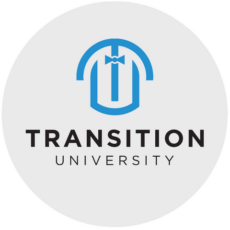
Mental Health – More Than Just a Bad Day?
The Winter season with the lack of sunlight can be difficult for many. Everyone has bad days now and then, including our youth, aged 14-22 years. It is normal to have stress and some anxiety in our lives. A little bit of stress and anxiety can even be good for us. It helps us know we are doing challenging things, getting better, and learning. It is also normal to feel happy some days and a little bit sad other days. Our moods vary depending on many factors; these factors can include events occurring in our families, communities, and in the world. However, It is not normal to have feelings take over the thoughts that make us unable to sleep, eat, work, or function for days or even weeks at a time. If you feel you are unable to control your thoughts, feelings, emotions, or actions, it could be a signal you should talk with someone and see if you could benefit from treatment or therapy. To help gauge your youth’s mental health, consider using this quick check-in tool here.
If you are in crisis or need mental health resources or treatment, please refer to these resources.
Utah Suicide & Crisis Line 800‐273‐TALK or Dial 988
The Utah Crisis Line provides compassionate support. We give referrals to anyone in need of mental health or emotional wellbeing services. Whatever age you are, you can call for help 24 hours a day, 7 days a week, 365 days a year. There is no cost. We have interpreters in more than 150 languages to help. The line is managed and staffed by certified crisis workers at the Huntsman Mental Health Institute (HMHI). This 800 number recognizes the area code of caller ID and transfers Utah area code numbers to the Utah team. If you are calling from a non‐Utah area code, but you want a Utah response, call the local number 801‐587‐3000.
Warm Line – 833‐SPEAKUT (833‐773‐2588)
Talk to someone who’s been there before and understands. Sometimes you may need a supporter as you heal and recover from your own personal struggles. If you need to talk with someone, you can call the Utah Warm Line for that support. The Utah Warm Line is free for all callers. When you call the Utah Warm Line, you will speak with a certified peer support specialist. Our peer support specialists have gone through specialized training. They have also lived through experiences like yours—mental illness and substance misuse that is disrupting your happiness. Call for support today!
SafeUT App – https://hs.utah.gov/smr
Download the SafeUT and crisis prevention app for 24/7/365 for students, parents, educators, and others. You can chat with a licensed counselor for support or submit a confidential tip right from your smartphone, or call 833‐372‐3388 to talk about what is on your mind.
Youth Mental Health Support Groups
Peer support can be of great benefit for the healing and recovery of teens dealing with mental health challenges. Check out the resources below to get your loved one involved with local peer support groups at the Utah Parent Center https://utahparentcenter.org/youth-mental-health-support-groups/
Stabilization & Mobile Response (1‐833‐ SAFE‐FAM)
For families with children/youth ages 0‐20 experiencing challenges. Over the phone support and problem-solving, mobile response services, and in‐home stabilization services to help your family stabilize and self‐manage future challenges. Free, family guided, and youth-driven. https://hs.utah.gov/smr
Live On! Campaign – https://liveonutah.org/
Statewide effort to prevent suicide by promoting education, providing resources, and changing our culture around suicide and mental health. Together we can get through, reach out, lift up, look ahead, and Live On. Like on Facebook. Follow on Instagram.
Emotional Health Relief Line ‐ 833‐442‐2211
Intermountain Healthcare is offering a free emotional relief hotline for anyone who needs mental health support related to COVID19. Caregivers are available 10AM to 10PM, 7 days a week.
Utah Strong Recovery – 385‐386‐2289 (call or text)
Email utahstrong@utah.gov if you or someone you know is experiencing stress, anxiety, or depression because of COVID19. Talk with a crisis counselor 7 days a week, from 7 AM to 7 PM. All information is confidential and free of charge.
myStrength – https://dsamh.utah.gov/
Free online tool to help you live your best life. You’ll find help for stress, anxiety, chronic pain, and more. It’s safe, secure, and personalized – just for you. Track your health, enjoy activities, and become inspired. myStrength has recently added resources and supports surrounding COVID‐19 and the behavioral health needs that you may have during this time.
CALL-UP: for Utah Medical Professionals
The program is a state-wide psychiatric consult service. HMHI (formerly UNI) has teamed up with the Utah State Division of Substance Abuse and Mental Health to create the Consultation Access Link Line to Utah Psychiatry (CALL-UP). CALL-UP is a new legislative-funded program to address the limited number of psychiatric services in Utah and improve access at no cost to providers/patients in the state of Utah. The program will support primary care providers in meeting the treatment needs for their patients’ mental health. Available M-F from 12:00 pm to 4:30 pm by calling: 801-587-3636. Or, the email is: Callup@hsc.utah.edu
Caring Connections
The University of Utah, College of Nursing offers a variety of grief support groups throughout the year. Each support group is designed to help you cope with a different kind of loss and grief, including suicide. The groups are eight weeks in length and are facilitated by expert clinicians in the fields of social work, nursing, counseling, and psychology. https://nursing.utah.edu/caring-connections
To learn about other Utah resources for crisis and suicide prevention:
- Crisis and Suicide Prevention, Utah https://healthcare.utah.edu/uni/programs/crisis‐diversion.php
- The Utah Division of Substance Abuse and Mental Health https://dsamh.utah.gov/
- National Alliance on Mental Illness (NAMI) https://www.namiut.org/
- American Foundation on Suicide Prevention,
- Utah Chapter https://afsp.org/chapter/utah
- For additional resources in the human services and social services area, please call 2‐1‐1 or see https://211utah.org/






